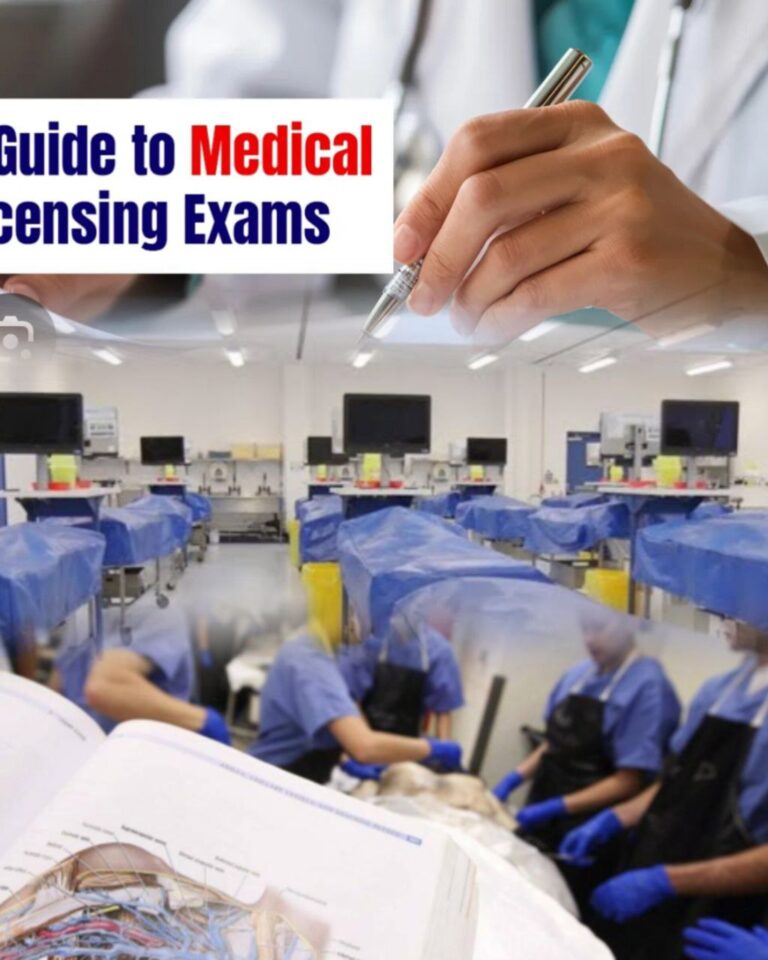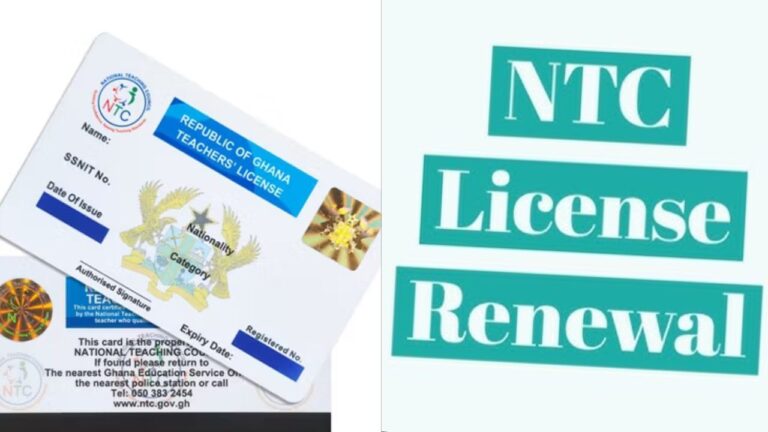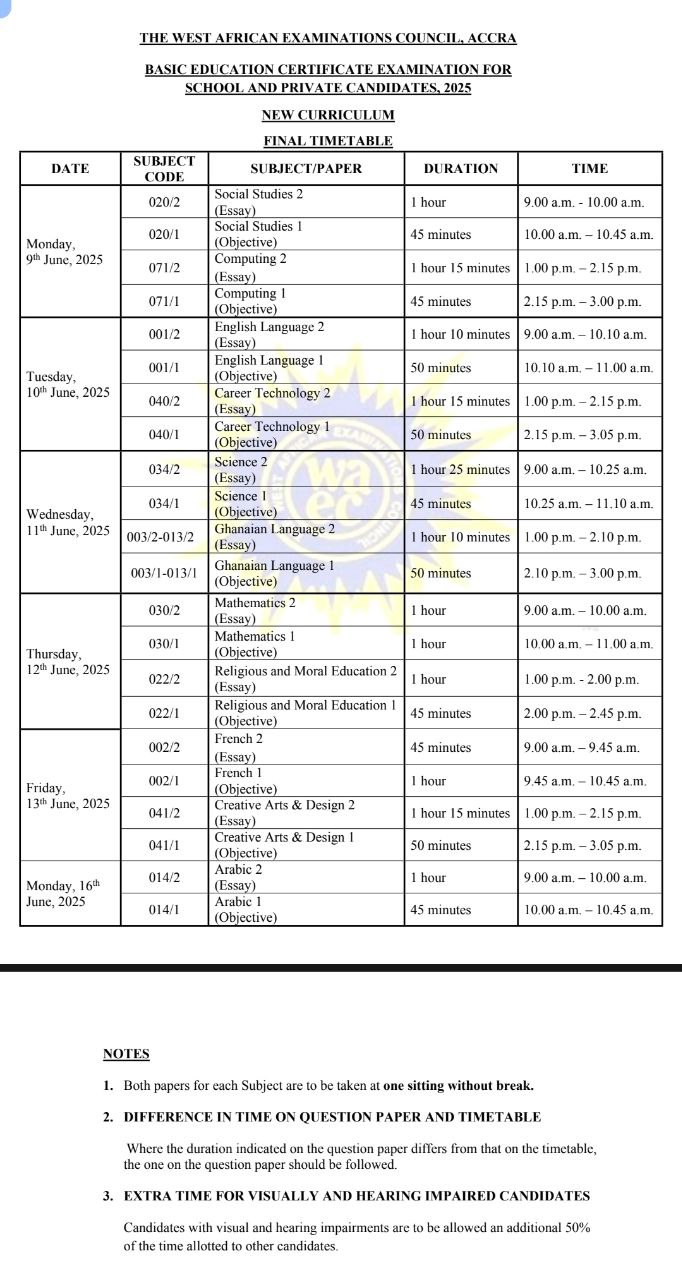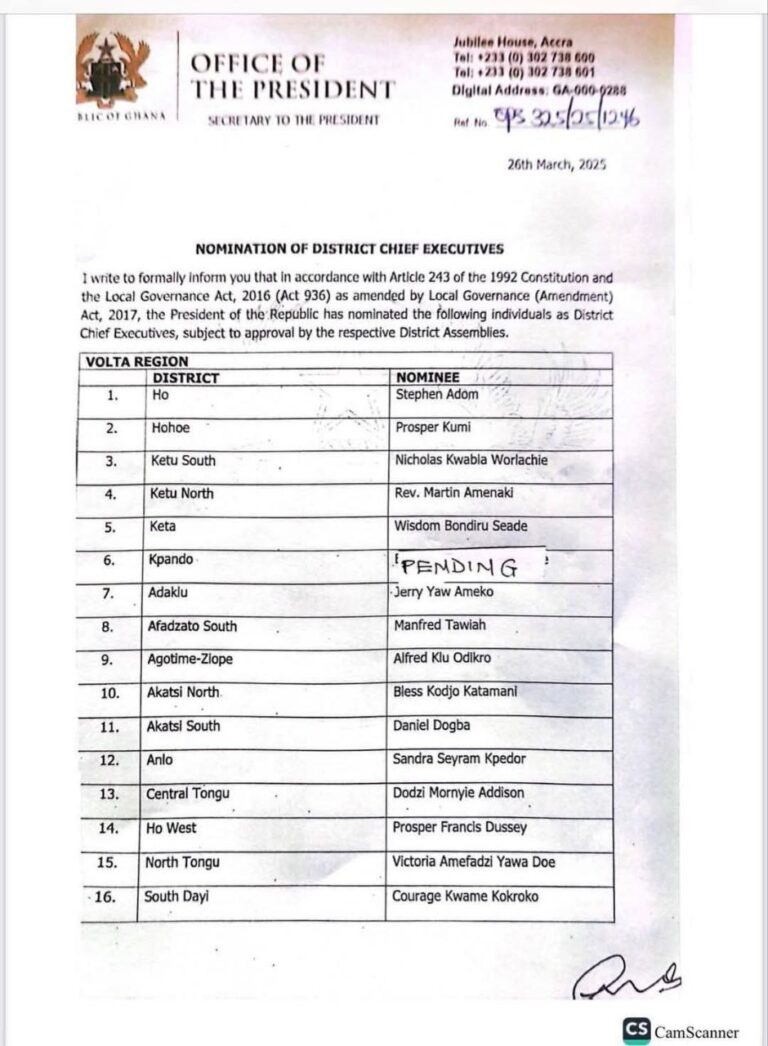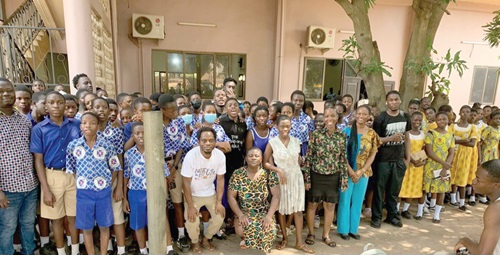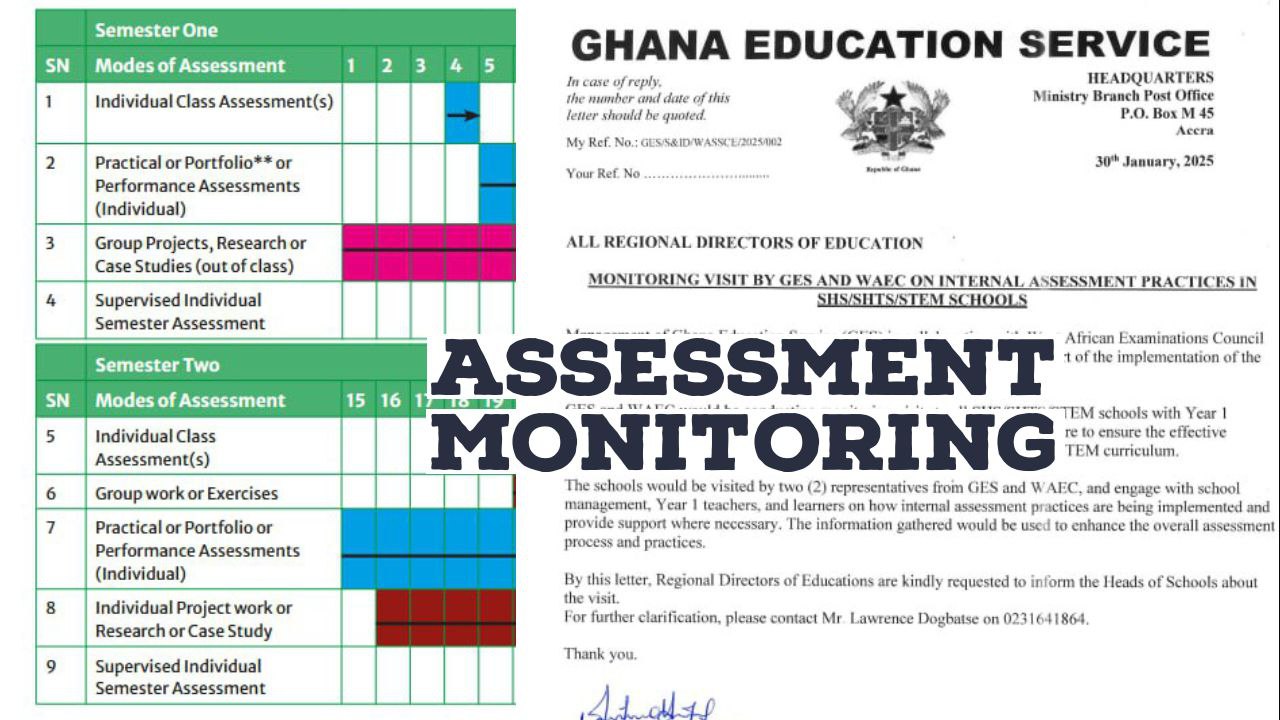
New Curriculum Assessment Methods and Monitoring Visits by GES and WAEC
The Ghana Education Service (GES) and the West African Examinations Council (WAEC) have introduced new internal assessment practices as part of the implementation of the updated SHS/SHTS/STEM curriculum for the 2024/2025 academic year.
In a letter sighted by gesi360.com, GES and WAEC announced plans to conduct monitoring visits to schools to ensure the fidelity of implementation (FI) of these new assessment methods.
Join GES/MOE Updates Click here to the Channel
Key Details from the GES Letter
The letter, dated 30th January 2025, outlines the following:
- Purpose of Visits: To monitor the implementation of internal assessment practices under the new curriculum.
- Dates: 10th to 14th February 2025.
- Schools to be Visited: All SHS/SHTS/STEM schools with Year 1 students.
- Teams: Two representatives from GES and WAEC will visit each school.
- Engagement: The teams will interact with school management, Year 1 teachers, and learners to assess the implementation of internal assessments and provide support where necessary.
- Outcome: Data collected will be used to improve assessment processes and practices.
For further clarification, schools are advised to contact Mr. Lawrence Dogbatse on 0231641864.
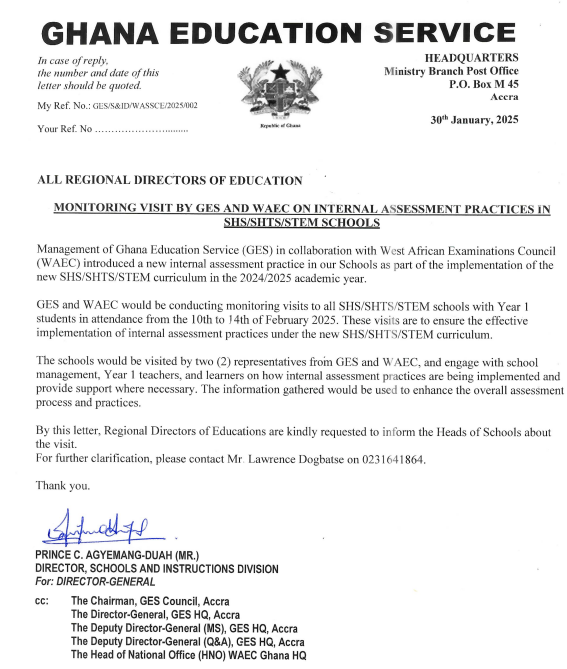
For your Transcript and English Proficiency from Universities in Ghana, Contact Seekers Consult to get it for You. 0550414552
New Assessment Methods in the Curriculum
The new curriculum introduces nine main assessment events that teachers must score and record to compile each learner’s academic transcript for the year. These are:
- Two Class Exercises or Homework
- One Individual Portfolio
- One Group Project
- Two Mid-Semester Examinations (first and second semesters)
- Two End-of-Semester Examinations (first and second semesters)
- One Individual Project
The curriculum also emphasizes continuous weekly assessments to foster 21st-century skills, ICT integration, national values, and support for special needs learners.
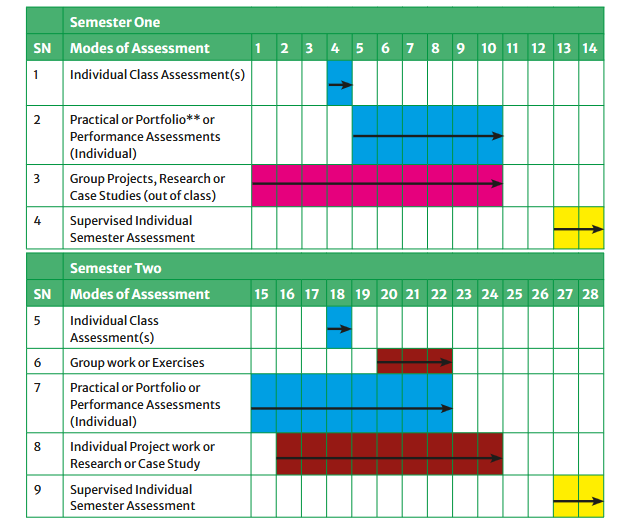
Six Modes of Assessment
The TAMT (Teaching and Assessment Methods Toolkit) identifies six modes of assessment, which cover the nine assessment events:
| Mode of Assessment | Timing |
|---|---|
| Class Exercise/Homework | Week 7 and Week 18 |
| Mid-Semester Examination | Week 6 (1st Semester) and Week 18 (2nd Semester) |
| End-of-Semester Examination | Week 12 (1st Semester) and Week 24 (2nd Semester) |
| Group Project | Due in Week 8 |
| Individual Portfolio | Introduced in PLC Session 1, due by Week 20 of the 2nd Semester |
| Individual Project | Due in Week 22 |
Individual Portfolio Requirements
The Individual Portfolio is a comprehensive compilation of a learner’s academic achievements throughout the year. It must include the following artefacts:
- Research Report: Completed in Week 3.
- Group Project: Submitted in Week 8.
- Group Simulation Records: From Week 10.
- Poster Records: From Week 11.
- End-of-Semester Exams: First semester results from Week 12.
- Group Homework: Completed in Week 15.
- Mid-Semester Exams: Results from Weeks 6 and 18.
- Individual Project: Completed in Week 22.
How to Administer: Teachers must provide clear instructions to learners on how to compile and submit their portfolios by the end of Week 22.
Mid-Semester and End-of-Semester Examinations
Schools are required to create a Table of Specification for both Mid-Semester and End-of-Semester Examinations to ensure alignment with the curriculum objectives.
Capturing Learner Assessment Scores for Transcripts
Assessment scores must be captured at specific intervals to ensure accurate record-keeping. Here’s a breakdown:
- Individual Class Assessment: Scores should be ready by Weeks 4 and 18.
- Individual Practical/Performance Assessment: Scores should be ready by the end of Weeks 5–10 and 15–22.
- Group Projects/Research/Case Studies: Scores should be ready by Week 10.
- Supervised Individual Semester Assessment: Completed by Weeks 13/14 and 27/28.
- Individual Project Work/Research/Case Study: Scores should be ready by Week 24.
Assessments must cover 21st-century skills, GESI (Gender Equality and Social Inclusion), SEL (Social and Emotional Learning), and national values as outlined in the TAMT.
Conclusion
The new curriculum and assessment methods aim to provide a holistic education that prepares learners for the challenges of the 21st century. With the support of GES and WAEC, schools are expected to implement these practices effectively, ensuring that learners develop the necessary skills and competencies for future success.
For more information, refer to the TAMT (Teaching and Assessment Methods Toolkit) or contact the relevant authorities.
This blog post is based on official communication from the Ghana Education Service and the West African Examinations Council. Stay tuned for more updates on educational reforms in Ghana!
Join GES/MOE Updates Click here to the Channel
Gesi360.com


